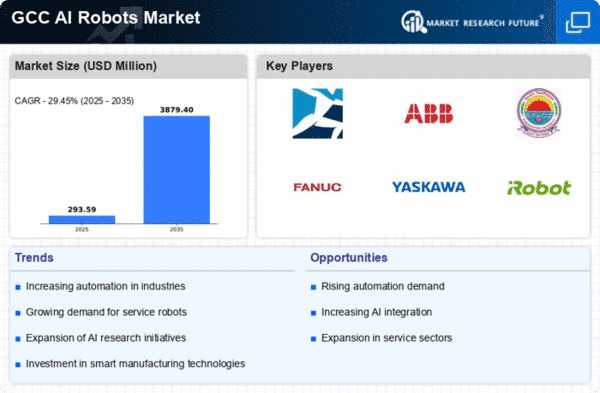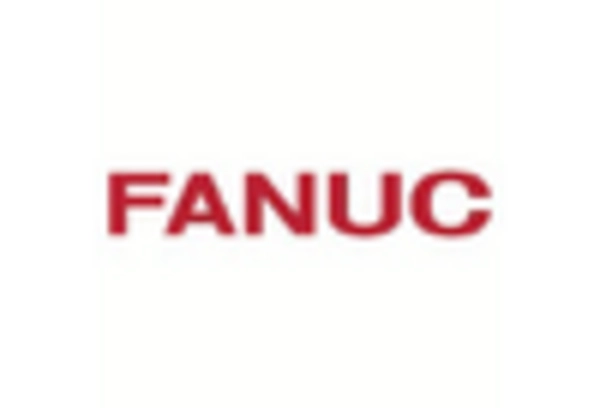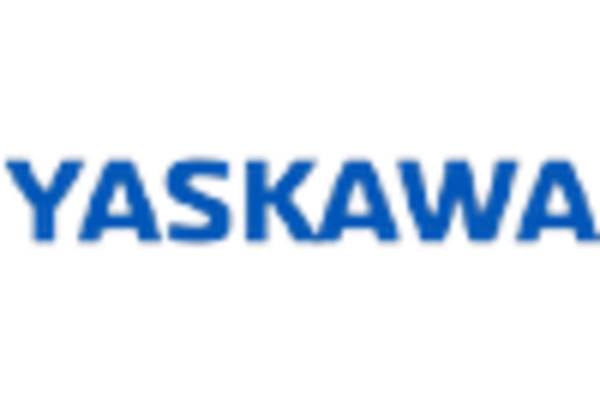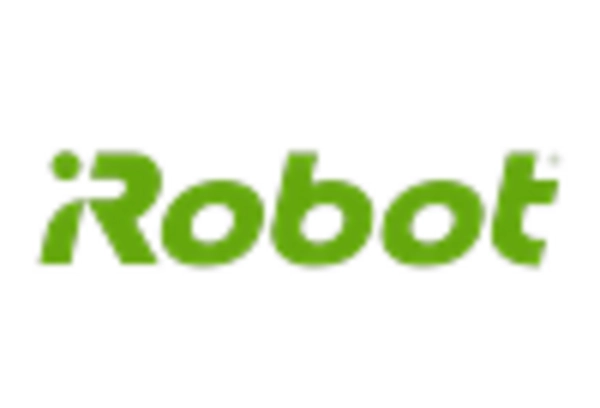Rising Labor Costs
The The market for AI robots in the GCC is experiencing a notable surge due to rising labor costs across various sectors. in the GCC is experiencing a notable surge due to rising labor costs across various sectors. As businesses face increasing expenses related to hiring and retaining skilled labor, the adoption of ai robots appears to be a viable solution. Companies are increasingly investing in automation to enhance productivity and reduce operational costs. For instance, the manufacturing sector has reported a shift towards robotic automation, with a projected growth rate of 15% annually. This trend indicates that organizations are prioritizing efficiency and cost-effectiveness, thereby driving the demand for ai robots. Furthermore, the integration of ai robots into logistics and warehousing is expected to streamline operations, further contributing to the growth of the ai robots market in the region.
Technological Advancements
Technological advancements play a crucial role in shaping the ai robots market in the GCC. Innovations in artificial intelligence, machine learning, and robotics are enabling the development of more sophisticated and capable robots. These advancements are not only enhancing the functionality of ai robots but also expanding their applications across various industries. For example, the healthcare sector is witnessing the introduction of ai robots for surgical assistance and patient care, which is projected to grow by 20% over the next five years. This evolution in technology suggests that the ai robots market will continue to evolve, with new capabilities and applications emerging, thereby attracting further investment and interest from businesses.
Evolving Consumer Expectations
Evolving consumer expectations are reshaping the ai robots market in the GCC. As consumers become more accustomed to advanced technologies, their demand for personalized and efficient services is increasing. Businesses are responding by integrating ai robots to enhance customer experiences and streamline service delivery. For instance, the retail sector is adopting ai robots for inventory management and customer assistance, which could lead to a market growth of 18% in the next few years. This shift in consumer behavior suggests that companies must adapt to meet these expectations, thereby driving the adoption of ai robots in various sectors.
Government Initiatives and Support
Government initiatives and support are significantly influencing the ai robots market in the GCC. Various governments are actively promoting the adoption of robotics and automation as part of their economic diversification strategies. For instance, initiatives aimed at fostering innovation and technology development are being implemented, which could lead to increased funding and resources for ai robots. The UAE government has set ambitious goals to become a leader in robotics by 2030, which may result in a projected market growth of 25% in the coming years. Such supportive policies indicate a favorable environment for the ai robots market, encouraging businesses to invest in automation solutions.
Increased Focus on Safety and Efficiency
The growing emphasis on safety and efficiency within industries is driving the ai robots market in the GCC. Companies are increasingly recognizing the potential of ai robots to enhance workplace safety by taking on hazardous tasks and reducing human exposure to risks. This trend is particularly evident in sectors such as construction and oil and gas, where safety is paramount. The integration of ai robots is expected to improve operational efficiency, with studies suggesting a potential increase in productivity by up to 30%. As organizations prioritize safety and efficiency, the demand for ai robots is likely to rise, further propelling the market forward.
















